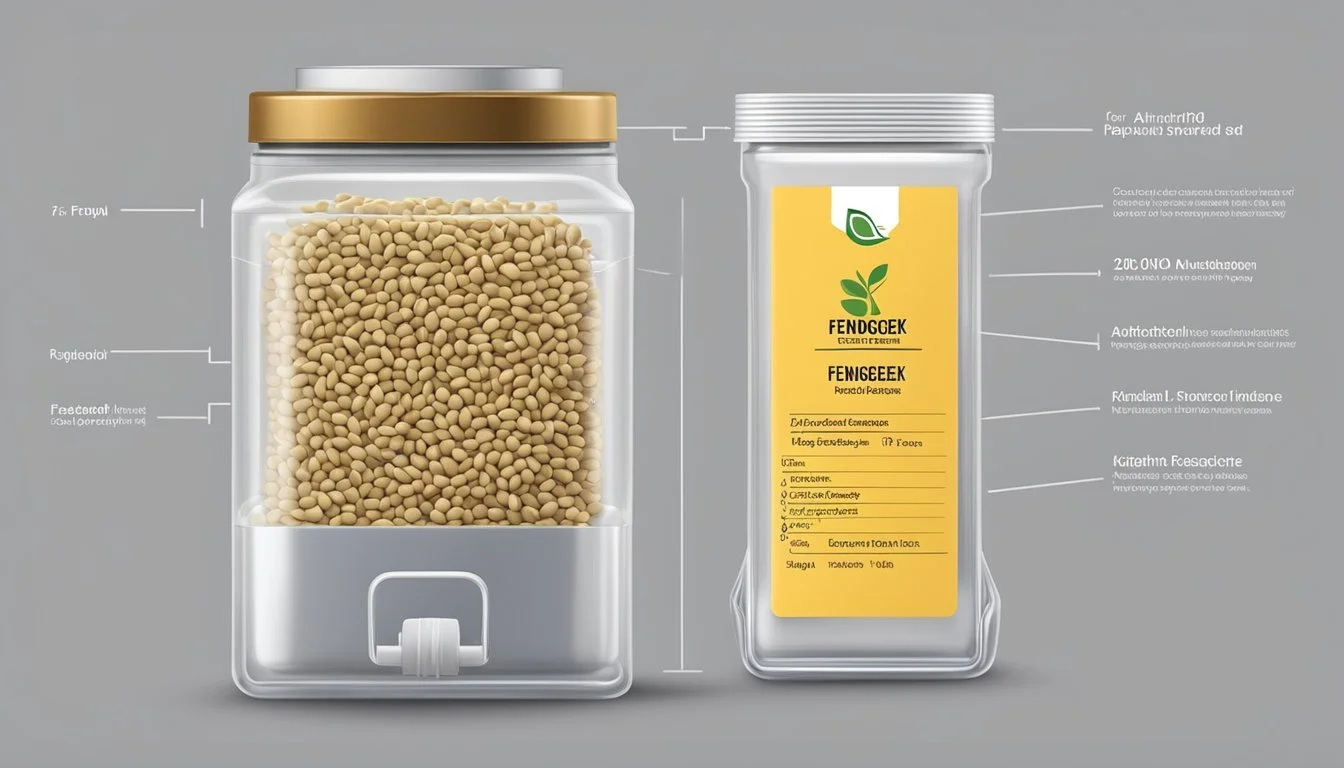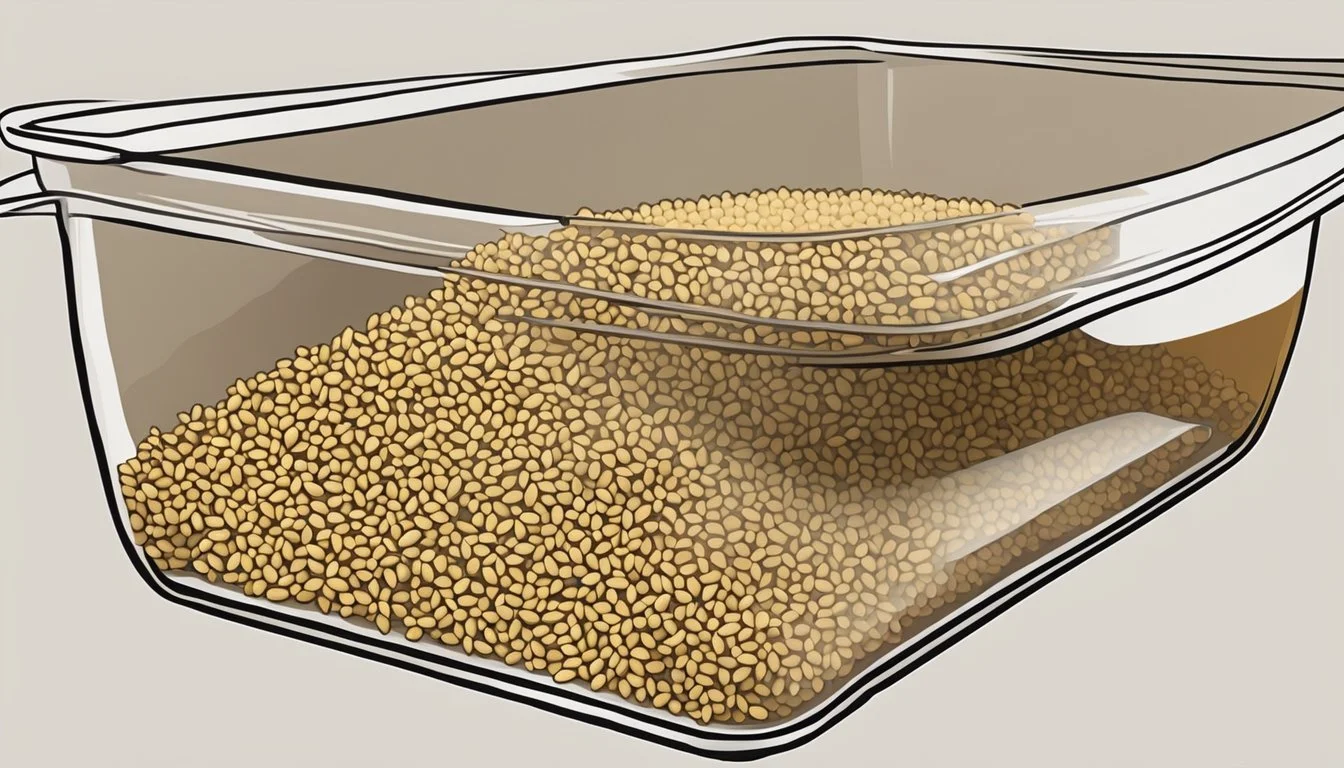Does Fenugreek Seeds Go Bad?
Shelf Life and Storage Tips
When it comes to spices and herbs used in the kitchen, fenugreek seeds often make the list due to their distinct flavor and myriad of health benefits. Many people wonder, "Does fenugreek go bad?" The answer is straightforward: fenugreek seeds do not go bad in the traditional sense, but they can lose their aroma and potency over time.
Fenugreek seeds are known for their health benefits, such as regulating blood sugar, alleviating menstrual cramps, and improving overall digestion. These seeds, when stored properly, can retain their effectiveness and aroma for an extended period. To maximize their shelf life, it's crucial to keep them in an airtight container away from light and moisture, which can degrade their quality.
Aside from their culinary uses, fenugreek seeds are rich in fiber and essential minerals like iron and magnesium. This makes them not only a flavorful addition to dishes but also a nutritious one. By ensuring proper storage, you can enjoy both the taste and health benefits of fenugreek seeds for a longer time.
Understanding Fenugreek
Fenugreek is an adaptable plant with various culinary and medicinal uses. It is valued for its unique flavor and health benefits.
Botanical Profile
Fenugreek, known scientifically as Trigonella foenum-graecum, is an herbaceous plant. It typically stands about 2-3 feet tall with green leaves and small white flowers. The plant produces pods that contain golden-brown seeds. These seeds are the primary part utilized for their diverse benefits. They contain natural oils and compounds that contribute to their distinctive aroma. Fenugreek is native to the Mediterranean and parts of Asia, especially India. It thrives in well-drained, fertile soil and requires plenty of sunlight. Understanding these botanical characteristics is essential for anyone looking to cultivate or use fenugreek effectively.
Culinary Uses
Fenugreek seeds are a staple in various culinary traditions, particularly in Indian cuisine. They are used as a spice in curries, teas, and spice blends like garam masala. The seeds offer a slightly bitter, nutty flavor, which mellows when cooked. In addition to curries, they enhance the flavor profile of pickles, chutneys, and bread.
In some cultures, fenugreek seeds are also used to flavor beverages. For instance, in Indian households, fenugreek-infused water and tea are common. Cooking with fenugreek not only adds unique flavors but also incorporates its nutritional benefits. Whether used whole or ground, these seeds provide a distinct taste and aroma that can transform dishes.
Nutritional Value and Health Benefits
Fenugreek seeds offer a wealth of nutritional value and possess several health-promoting properties. They provide vital macro and micronutrients and exhibit therapeutic effects that can aid in managing various health conditions.
Macro and Micronutrients
Fenugreek seeds are packed with essential nutrients that support overall health. They contain protein, dietary fiber, and a range of vitamins and minerals.
A typical serving of fenugreek seeds (approximately 11.1 grams) includes:
Nutrient Amount Calories 35.9 Protein 2.55 grams Dietary Fiber 2.7 grams Sodium 7.4 milligrams Potassium 85.5 milligrams Iron 3.7 milligrams Magnesium 21 milligrams
Fiber in fenugreek seeds aids digestion and helps maintain healthy blood sugar levels. Protein content supports muscle repair and growth. Iron is essential for oxygen transport in the blood, and magnesium plays a crucial role in numerous biochemical reactions in the body.
Therapeutic Effects
Fenugreek seeds are known for their therapeutic benefits, which encompass a variety of health conditions. They have significant anti-inflammatory and antioxidant properties, making them useful in combating chronic diseases.
Regular consumption of fenugreek can help regulate blood sugar levels, especially beneficial for individuals with type 2 diabetes. The seeds can improve insulin sensitivity and reduce fasting blood sugar levels.
Fenugreek has been shown to lower cholesterol levels, including triglycerides and LDL cholesterol, thereby reducing the risk of cardiovascular diseases. Some studies suggest it might have anticancer properties, although more research is needed.
These seeds also harbor anti-inflammatory capabilities that can alleviate symptoms in conditions like arthritis, and their antioxidants help protect against cellular damage.
Storing Fenugreek Seeds
Fenugreek seeds can last for a considerable period when stored correctly, ensuring they retain their flavor, aroma, and nutritional benefits for the longest time possible.
Shelf Life
Fenugreek seeds have a shelf life of up to 2-3 years when stored under optimal conditions. If exposed to air, moisture, or heat, their quality diminishes more quickly. These seeds do not spoil in a conventional sense; instead, they lose their potency, aroma, and beneficial properties. Refrigeration and freezing extend their shelf life, protecting them from environmental factors that accelerate degradation.
Proper Storage Conditions
Maintaining optimal storage conditions is essential for the longevity of fenugreek seeds. Store them in an airtight container to prevent exposure to air and moisture, which can lead to rancidity.
Keep the container in a cool, dry place away from direct sunlight. The refrigerator or freezer can be ideal for long-term storage, as cooler temperatures help preserve their quality.
Ensure the storage area remains consistent in temperature to avoid condensation inside the container, which could affect the seeds negatively. These practices maintain the seeds' aromatic essence, taste, and nutritional value for future culinary and health uses.
Signs of Deterioration
Fenugreek seeds can exhibit several signs that indicate spoilage. Detecting these changes early can help ensure the seeds are not consumed past their useful life.
Change in Aroma and Flavor
One of the primary signs of deterioration in fenugreek seeds is a change in aroma. Fresh fenugreek seeds typically have a mild, slightly sweet-smelling aroma. If the seeds start to emit a rancid or unusually bitter odor, it indicates that the natural oils within the seeds have gone bad.
Additionally, a change in flavor can also signal spoilage. Fresh seeds have a somewhat bitter taste but shouldn't be unpleasant. If the taste becomes overwhelmingly bitter or distinctly off, it is a clear indicator that the seeds are no longer good.
Physical Changes
Physical changes, such as alterations in color and texture, are also tell-tale signs of spoilage in fenugreek seeds. Fresh seeds are generally yellowish-brown and smooth. If the seeds take on a darker or uneven color or if they become murky, it's a sign they may be deteriorating.
Changes in texture should also raise red flags. Good-quality fenugreek seeds should be firm to the touch. If they become excessively soft, mushy, or exhibit any unusual hardness, they are likely no longer viable for use. Additionally, the appearance of mold or visible moisture within the storage container is a definitive sign that the seeds have gone bad.
Health Considerations
Fenugreek seeds offer various health benefits but can also pose risks. Understanding potential side effects is crucial for safe use.
Potential Side Effects
Digestive Issues: Fenugreek seeds may lead to diarrhea, constipation, or nausea. These effects are commonly reported when taken in large doses.
Pregnancy and Breastfeeding: Fenugreek acts as a galactagogue, boosting milk supply. Pregnant individuals should avoid high doses, as they may stimulate uterine contractions.
Blood Sugar Levels: Fenugreek can lower blood sugar, beneficial for those with diabetes but problematic when combined with other blood sugar-lowering medicines.
Cholesterol Levels: Known to reduce LDL cholesterol, fenugreek also contains saponins that may affect cholesterol metabolism.
Hormonal Effects: The seeds can impact testosterone levels and dysmenorrhea, offering pain relief but warranting caution in hormonal therapies.
Other Side Effects: Allergic reactions are possible but rare. Always consult a healthcare provider before beginning any new supplement.
Culinary Applications
Fenugreek seeds offer a versatile addition to various dishes, contributing distinct aroma and nutrition. Their unique flavor enhances several types of cuisine, particularly in Indian cooking.
Incorporating into Diet
Adding fenugreek seeds to one's diet can be straightforward and rewarding. Seeds can be soaked overnight to soften them, reducing bitterness and making them suitable for salads and soups. Ground seeds are often used in spice blends, enhancing sauces, and curries with a rich, complex taste. Drizzle a bit of ground fenugreek into vegetable dishes or bread dough to elevate your meals with an aromatic flair. Fenugreek seeds can complement teas, contributing both health benefits and flavor.
Traditional Recipes
In traditional Indian recipes, fenugreek plays a crucial role. Curries often feature ground fenugreek for its deep, earthy notes. To prepare, dry roast the seeds in a pan until aromatic, then grind to a fine powder. This method ensures the spice retains its potency. Incorporating fenugreek into spice mixes like garam masala adds depth to the blend. In addition, the seeds are frequently used in pickles and stews. They also enhance breads, such as naan and parantha, with a subtle, inviting flavor.
Broader Cultural Context
Fenugreek seeds have played a significant role in various cultures across the globe, particularly in traditional practices and global applications. These seeds have been used in traditional medicine and culinary traditions in numerous countries, with notable mentions in Indian and Chinese frameworks.
Fenugreek in Traditional Practices
In India, fenugreek is a staple in Ayurvedic medicine, utilized for its potent health benefits. It is commonly consumed in the form of teas, pastes, and even capsules. In Chinese medicine, fenugreek has historically been part of herbal remedies aimed at treating kidney issues and promoting overall vitality.
Throughout Asia, the seeds are incorporated into daily diets, often used in spice blends, particularly curries and stews. The seeds are known for their anti-inflammatory and digestive properties, which have been documented in traditional texts.
Global Utilization
Fenugreek's reach extends beyond Asia, finding a place in global culinary and medicinal practices. In the Middle East, the seeds are often made into teas or ground into a paste for culinary uses. Additionally, in Western contexts, fenugreek has garnered attention for its potential anticancer properties and diabetes management.
In European and American kitchens, fenugreek is used to add a maple syrup-like flavor to various dishes. Moreover, these seeds are increasingly studied for their nutritional composition, boasting high protein and fiber content, which aligns with growing health trends focused on natural remedies and whole foods.









